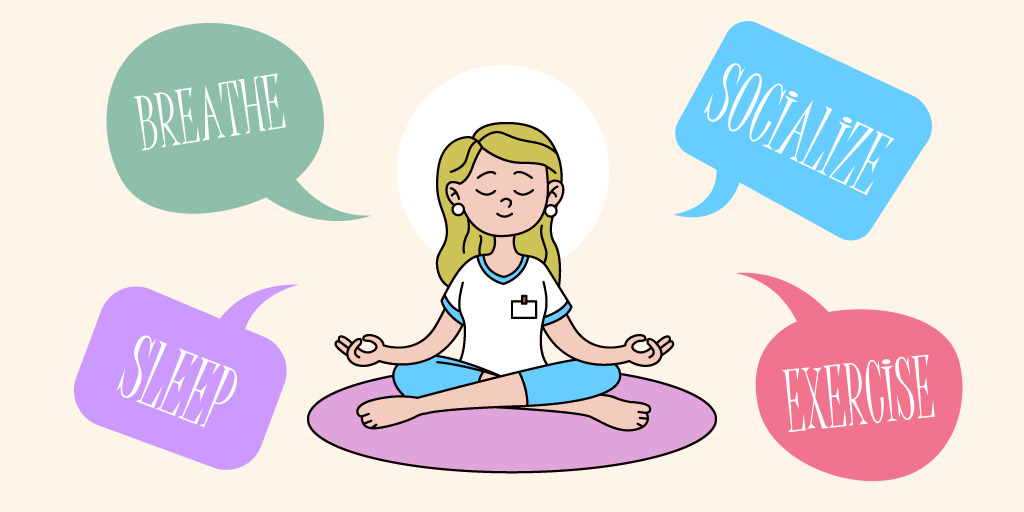In the contemporary, high-speed world we inhabit, stress has become an unwelcome constant for many individuals. The pressures of modern life often leave us feeling overwhelmed Effective Stress Management, anxious, and emotionally depleted. Enter the practice of mindfulness – an influential tool that aids in stress management and the nurturing of present-moment awareness. We deeply comprehend the profound impact that mindfulness can exert on one’s overall well-being. In this comprehensive guide, we plunge into the depths of mindfulness for stress management, equipping you with invaluable insights.
Grasping the Essence of Stress Management Mindfulness
Beyond a mere buzzword Stress Management, mindfulness stands as a centuries-old practice intertwined with various cultures and traditions. Its core essence involves being completely attuned to the present moment, acknowledging our thoughts, emotions, and sensations devoid of judgment. This practice empowers us to observe our experiences without the need to alter or repress them. Through mindfulness, we can carve out a mental space that enables us to respond to stressors with clarity and serenity.
The Scientific Foundation of Mindfulness and Stress Management
Scientific exploration has delved into the advantages of mindfulness concerning Stress Management reduction, operating on both psychological and physiological levels. Research indicates that practicing mindfulness can lead to a decrease in cortisol levels – the hormone driving the body’s stress reaction. Furthermore, mindfulness meditation has been associated with heightened activity in the prefrontal cortex, the brain region linked to emotional regulation.
Integrating Mindfulness into Your Daily Life
Incorporating mindfulness into your daily routines doesn’t need to be intricate. Here are some pragmatic pointers to guide your initiation:
1. Mindful Breathing
Stress Management Fundamentally, deep breathing constitutes a vital facet of mindfulness practice. Allocate a few moments each day to concentrate on your breath. Inhale deeply through your nostrils, allowing your lungs to fill with air, and then exhale gradually through your mouth. This elementary practice possesses the capability to instantly pacify your nervous system.
2. Savvy Mindful Eating
In our fast-paced culture, the consumption of meals frequently turns into a hurried affair, devoid of true appreciation. Embrace mindful eating by immersing yourself in the flavors, textures, and aromas of your food. Chew deliberately and relish each mouthful.
3. The Art of Meditation
Mindfulness meditation serves as a foundational aspect of this practice. Locate a tranquil space, assume a comfortable posture, and channel your attention towards your breath, a mantra, or a specific sensation. When your thoughts wander (as they inevitably will), gently steer your focus back to your chosen point of concentration.
4. Cultivating a Gratitude Journal
Enhance positivity and diminish Stress Management through the practice of maintaining a gratitude journal. Each day, jot down a few things you’re grateful for. This ritual shifts your focus from stressors to the affirmative facets of life.
Mindfulness’s Role in Nurturing Emotional Resilience
A noteworthy consequence of consistent mindfulness practice is the evolution of emotional resilience. By impartially observing our thoughts and emotions, we can construct a barrier between external triggers and our reactions. This empowers us to confront challenges with enhanced equilibrium and elegance.
Mindfulness’s Influence in the Professional Sphere
The corporate realm is awakening to the advantages of mindfulness in enhancing employee well-being and productivity. Companies are integrating mindfulness programs to curtail workplace stress, augment concentration, and foster a healthier work milieu. By endorsing brief mindfulness interludes and providing resources for mindfulness training, organizations empower their staff to effectively Stress Management.
The Journey to Mindful Stress Management
In summation, mindfulness extends a transformative strategy for stress management. Through the cultivation of present-moment awareness, we can redefine our relationship with stress and lead a more centered existence. Remember, mindfulness is a skill that requires time to hone. Exercise patience with yourself as you embark on this expedition toward inner tranquility and tenacity.
If you’re prepared to embark on an expedition into the domain of mindfulness and stress management, we invite you to explore further illuminating articles on our website. Unearth the potency of mindfulness and unveil an unprecedented echelon of well-being.
